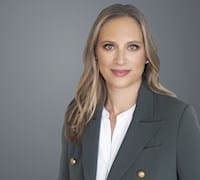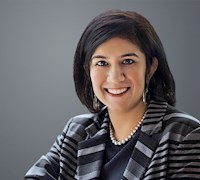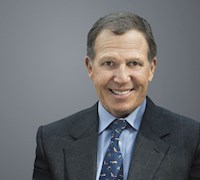
Harry L. Davis’s 60-Year Career
In honor of Davis’s conferment to emeritus status, here’s a look back at some of his most memorable contributions to the school.
Harry L. Davis’s 60-Year Career
Illustrations by Matt Chase
The disruptions of the past two years have been huge—and leadership challenges, as a result, are bigger than ever. The fundamental shape of working models, workplaces, and workforces are going to change in coming months. Research firm Gartner’s 2021 HR Priorities Survey notes that putting strong and resilient leaders in place is a top priority for organizations. Two-thirds of companies now provide leadership character development programs, per Training magazine’s 2021 Annual Leadership Development Survey Report—but ironically, in an Interact/Harris poll, 91 percent of employees said that their leaders are poor communicators. Moreover, per leadership consulting firm DDI’s Global Leadership Forecast 2021, leaders are beginning to burn out at record rates.
Meanwhile, the very mechanics of managing people are changing as remote work and work-life balance expectations are shifting. As a result, it’s more important than ever to consider: What does it take to be a great leader, and how can we equip tomorrow’s leaders with the insights and skills that they need to succeed in the future?
The Chicago Approach to leadership is rooted in experiential learning. We spoke to three renowned leaders from the Booth community about the experiences and lessons that got them where they are today. All three of have spent countless hours reflecting on leadership, and they have written books to share what they have learned.
Ruchira Chaudhary, ’13 (AXP-11), author of Coaching: The Secret Code to Uncommon Leadership (2021), is a leading executive coach, adjunct faculty at several business schools, and founder and CEO of boutique consulting firm TrueNorth Consulting, focused on organizational strategy solutions. Eric Gleacher, ’67, author of Risk. Reward. Repeat.: How I Succeeded and How You Can Too (2021), founded the mergers and acquisitions business at Lehman Brothers, and in 1990 founded one of the world’s first successful M&A boutiques, Gleacher & Co. Alyssa Rapp, author of Leadership & Life Hacks: Insights from a Mom, Wife, Entrepreneur, and Executive (2019), is adjunct assistant professor of entrepreneurship at Chicago Booth and CEO of SPAC Healthwell Acquisition I, currently focused on acquiring technology-enabled health-care businesses.
Chaudhary, Gleacher, and Rapp bring their own unique approaches to leadership to bear as they inspire and support working professionals, students, and readers of their books in their quest to be better leaders every day. But universally, the trio agrees on one point: we all have the capacity to be more effective leaders when we make a personal commitment to personal development and actively embrace the concept of lifelong growth and learning.
Chicago Booth Magazine: How do you define the concept of leadership in the modern business world—and how has it evolved in an age of change and disruption?
Alyssa Rapp: Doing business today is like learning to navigate the sea, where there are no clearly defined roads to a destination. Keeping this in mind, I think leadership is about having a vision of where you’re sailing to, and having a plan of attack for how to get there. That means not only knowing how to recruit team members onto your boat and gather enough resources to sustain them during the trip, it also means being resilient when big waves of change threaten to carry you off course, and strategic enough to tack or pivot when needed. Grit and the ability to fight through discomfort are crucial attributes to any sailor—and any leader today.
Ruchira Chaudhary: Leadership is a difficult balancing act. Successful leaders build social, human, financial, relational, and structural capital and leverage these elements to create positive change. But most importantly, they inspire their teams to greater heights and to greater achievements: it’s these individuals who support and help lay the groundwork for the next generation of leaders who to me most exemplify successful or uncommon leadership. To accomplish today’s increasingly complex and difficult tasks, leaders have to be able to inspire and take others along on their journey and leverage the collective intelligence of their people. To do this, you have to be not just a great executive, but also a great coach who can be more empathetic, give your people more of a voice, and build reservoirs of trust.
Eric Gleacher: I picked up the basics of leadership in the Marine Corps, where I learned that it’s about treating everyone you meet with respect and setting an example through your personal actions. It’s also about exercising personal strength, as you’ve got to be resilient. Things change all the time in business, which means that you have to be aggressive, take risks, and figure things out as you go if you want to identify tomorrow’s winning strategies before competitors do. To get ahead, you basically have to chart a course that can’t be anticipated, learn to accept your failures and regroup as needed, and move quickly to shift your strategies as situations demand.

Grit and the ability to fight through discomfort are crucial attributes to any sailor—and any leader today.
CBM: What lessons have you picked up over the years that have made you a better leader?
Gleacher: One major lesson I learned was: surround yourself with a diverse group of people and views and advisors who aren’t afraid to tell you what they’re really thinking. Years ago, one of my long-term partners was one of my best friends, and as much as I loved him, he kept making the cardinal flaw in business of telling me what I wanted to hear. From this experience, I learned that you need to surround yourself with people who are smarter, younger, and not afraid to argue with you and call it the way it is. On top of this, it’s also important to learn how to adapt, grow your endurance, and operate with more international focus. But most importantly, I learned that no matter how much the best business practices shift over the years, the basic tenets of leadership don’t change. It’s important to maintain your integrity and stick to your values.
Chaudhary: I credit Chicago Booth for having a lot of influence on my thinking here. As I started to research what makes a fantastic leader for my book, lessons learned in school helped me realize that leadership isn’t really about the individual. Rather, it’s about the people that you bring along with you on your leadership journey, achieving success by finding ways to make them more successful. Ironically, the best performers aren’t necessarily the best leaders. Good leaders understand that potential, not performance alone, is the key ingredient for the perfect leadership recipe—and that even superstar performers need to be coached and nurtured so they can coach and build others.
For example: several decades ago, the late University of Chicago professor Benjamin Bloom, PhD ’42 (Education), conducted a study to decode what makes somebody a world-class tennis player, musician, or mathematician. But after years of research, he realized that none of these stellar performers were very gifted to begin with. Rather, the one thing they all had in common was a coach, teacher, or manager to help inspire them to better performance. So what academics and experts have found is that raw talent isn’t enough to get ahead on. If you want to be a great leader, you also need to possess the potential to lead others, expressed more by displaying aptitude at skills such as empathy, teamwork, and communications than your actual productivity or output, and you also need nurturing and coaching to recognize that potential.
CBM: Is there a single defining experience in your life or career that shaped your outlook on leadership?
Chaudhary: I did a brief stint in the world of advertising and realized quickly that it wasn’t what I wanted to do. I then got the opportunity to work for a human-resources consulting firm, but the first few years were hard—I was the outsider there, and a lot of the consultants were uncharitable. There were moments when I was sure I would give up, as it wasn’t working out for me. But instead, I wound up going back to study the basics of human resources, and quickly realized that I could carve out a distinct brand in the organization. I did this by focusing on a lot of solutions that were in their infancy, for example, post-merger integration, and began to publish papers and make a name for myself around them. That journey taught me a lot about building grit and resilience, not giving up, and making the most of what you have.
Gleacher: Mine was right at the beginning of my career, when I signed up for the Marines as a way to test myself. It was a pivotal experience at helping build confidence and self-ego: there was nobody there teaching you theoretical concepts. It was challenging, and you had to figure out your way around. You had to get things done on the ground pretty quick. Not only did I learn key leadership principles in the Marines—primarily, that it starts with flawless integrity, encompasses the pursuit of excellence, and requires you to lead by example, delegate responsibility, and develop people—I also learned that no matter how down in the dumps you are, you can’t show it and always have to keep a positive attitude and surround yourself with people focused on finding practical solutions and constructively moving forward. If you exude confidence and leadership when you walk into a room, it will affect how others perceive and react to you, and people will notice.
Rapp: My mother was a US ambassador under president Barack Obama, which is only one example of her extraordinary capability and strength. It is not surprising, therefore, that one of my most defining life moments was shaped by her.
When I was 12 or so, my mother and I had a disagreement, so I went out on a bike ride to cool my jets. As I was returning my bicycle into the garage, I inadvertently scratched her car. The next day when she went to go to work, she saw the damage and asked me point-blank if I had scratched her car. I said something to the effect of: “Not to the best of my knowledge.” She gave me three opportunities to be honest, but I didn’t come clean. She then pulled me from the state gymnastics competition, for which I’d earned a place and was going to be a key player on my team. Instead of competing, I came home after school every day and wrote essays on honesty, integrity, and truth. I learned from that experience that the truth always comes out. And it’s best to operate with the highest of integrity. And I have never wavered from these values since.

Good leaders understand that potential, not performance alone, is the key ingredient for the perfect leadership recipe.
CBM: It’s a central tenet of The Chicago Approach to leadership that both action and insight are key to learning and growth—why is it important to always be evolving and growing as a leader?
Gleacher: It’s vital to always be learning and experimenting because of the rate at which change now happens. Basic leadership fundamentals don’t change over the years—but the pace at which businesses must now evolve and operate only continues to accelerate. You’ve got to learn from your mistakes, keep moving, and not sit still. I myself have made plenty of mistakes, as we’re all constantly being asked to make the best judgments on the basis of our situation and without perfect information. But rather than get hung up on errors, you’ve got to regularly be trying new things and pushing forward and applying fresh strategies and solutions—otherwise, you’ll be left behind.
Chaudhary: What is innovation after all but the act of constantly coming up with new ideas and trying new things? You need to ensure not only that you are open as a leader to experimenting with new solutions, but that you are also able to assimilate and integrate information gained from these efforts back into what you currently do. You have to embrace new ideas, new ways of working, and new approaches to business, and constantly keep learning from the feedback loops that you create and insights you gain along the way.
Rapp: I believe in the Silicon Valley model of “fail fast, fail quickly,” so you can get to the right answer more rapidly. Making lots of little bets is critical to doing so, and it requires you to engage in actions that produce a continuous feedback loop. When you make a series of little bets, you don’t run the risk of losing everything on one solution. And if even one of those bets pays off, you can always double or even quadruple down on that strategy.
I firmly believe that being willing to try and fail quickly and honestly, and work hard to adapt until you find a strategy that works, allows for nimbler and more data-driven decision-making. I have yet to see a company that has applied this strategy that hasn’t arrived at a desired outcome more thoughtfully or more rapidly.
CBM: What’s the biggest risk you ever took as a leader—and how did it pay off?
Chaudhary: For me, it was when I left the guardrails of a stable corporate career to embark on the world of independent consulting. For those first two years, when I embarked on a large postmerger integration project based in Doha, Qatar, I spent my Mondays to Thursdays traveling from Singapore (my home base) to all over Europe, North Africa, and the Middle East.
It was daunting and scary, but it opened up a whole new world to me. It made me realize that, often, corporate roles can become a bit of a golden cage due to their stability, and that I wasn’t innovating or becoming better at my craft. The experience made me become a better version of myself and made me truly be able to add value to the organizations that I now work with.
Rapp: My first company, Bottlenotes, was a startup in the wine e-commerce category. When there was a major regulatory shift in the industry in 2008, many of our angel investors were telling us to raise the white flag. And I said, no, we’ve built something valuable here, and if we can retool this business model, we can still make the company work. So we transformed our events and digital content from marketing cost centers to profit centers, and continued to build a platform that helped connect brands with the next generation of wine enthusiasts. How we monetized that platform shifted but our core mission didn’t. Finding solutions in these types of scenarios really comes down to product market fit and trusting your intuition.
As fate would have it, I faced a regulator shift once again this year in an entirely different industry, on an entirely different dimension. We filed our S-1 for our SPAC, Healthwell Acquisition I, with the Securities and Exchange Commission on February 23, 2021, right before there was a major regulatory shake-up in the SPAC world. We had to believe in our strategy and make pivots, refiling our S-1 and shifting our strategy to go live. If you have a clear mission and shared vision and values with those around the table, you can continue to persevere despite unforeseen events. I can’t seem to escape these regulatory hurdles, though!
Gleacher: Back in my Lehman Brothers days, I thought that the mergers and acquisitions field would take off and be a huge business for us. That’s because I was already talking to CEOs, the best of whom were aggressive and thought that the fastest way they could make their companies bigger and more profitable was by doing smart deals. At the time, many major CEOs had a tacit understanding that they wouldn’t try to take over each other’s businesses—but I had a feeling this agreement wouldn’t hold.
Getting the M&A business off the ground at Lehman Brothers meant that I had to give up Caterpillar, Bankers Trust, and other big clients I had at the time. I bet my career on the move. I asked lawyer Martin Lipton if he’d teach me the business, and I’d go to his office from around 9 a.m. to noon on Saturday mornings to learn. My buddies thought the shift in strategy was impossible, and that no clients would sign up if I built a dedicated M&A services division, but within two to three years, we were right up there competing with Morgan Stanley and Goldman Sachs.

It’s vital to always be learning and experimenting because of the rate at which change now happens.
CBM: Given that no one leader ever holds all the answers, why is it important to make leadership a concept that scales—and how important is it to surround yourself with a diverse set of advisors?
Rapp: Think about COVID-19. It was the great equalizer for many companies. Those lean carnivores of business (whether they’re large-scale enterprises or startups) who are able to accelerate out of the gate quickly and maintain focus as things rebound in the economy will continue to thrive. As a leader, that means not only having to encourage intrapreneurship within your organization, but also having to empower your people to make quick adaptations. I believe that the larger the ship that you’re operating, the more tremendous lieutenants and team members that you need to have on board. Talent begets talent as well: when you have a trusted executive team of people whom you know are mission-driven and share the same values, they’re able to attract talent of that same caliber.
Happily, there’s never been a more opportune time to attract great and diverse talent. (And I mean diverse in all senses of the word, including diversity of thought, gender, age, experience, ethnicity, race, and so on.) Highest-caliber leadership teams that benefit by diverse perspectives will be increasingly critical to finding and maintaining sustainable competitive advantages in business going forward.
Chaudhary: Honestly, in my mind this is probably the single most important weapon in a leader’s arsenal. Successful leadership isn’t just about racking up big numbers: it’s about setting your team up for success; taking charge of how your colleagues think about misfortune, crisis, and adversity; and teaching your peers to be nimbler and more resilient. As a team, you often have to be able to move fast, even when you don’t know all the answers. And when confronted with a challenge, rather than dwell on the past, you always have to focus on the future.
If there’s one thing that the pandemic has taught us, it’s that the organizations that have thrived have been agile and resilient. No matter how smart or talented you are as a leader, nobody can have all the answers, right? Teamwork is key to dealing with whatever challenges are thrown at us more effectively. Great leaders inspire their teams to go further and find meaning and purpose in what they do. But more importantly, they also regularly harness the power of their people toward making important changes and achieving big goals.
CBM: What’s one thing you wish someone had pulled you aside earlier in your career and told you about in terms of what it takes to be a leader?
Gleacher: That your internal self-image is really important. I’m not saying to go around bragging about your abilities to other people, but rather that what you think of yourself and your skills in your own mind affects your behavior and willingness to take risks. Growing up, I didn’t have a great self-image and envied others who were living great lives and going to great schools whose names I had just heard for the first time.
But when I got out of the Marine Corps and into the business world and found something to do that I liked and was good at, my self-image grew by leaps and bounds—and making that type of change in thinking directly affects your performance and can have transformative applications for your capabilities and worldview. I lead by doing, but first I have to accomplish a goal in my mind, and when I can do so in my head, that’s real power. My private quest that I never spoke about to other people was to be regarded as the top M&A professional in the world. When you feel you’re capable of rising to the task and doing the job, it makes a huge difference.
Rapp: To expect the unexpected. I firmly believe in the quote commonly attributed to Winston Churchill: “Success is not final. Failure is not fatal. It’s the courage to continue that counts.” What’s that famous Mike Tyson quote? “Everybody has plans until they get hit.” You always have a thesis about which business strategy will work when you start a company and who you need to partner with to get the job done. There are going to come moments where that thesis or those decisions will be challenged, and you’ve just got to dig deep inside yourself, join arms with your colleagues, and keep forging ahead.
Out of all of the organizations I’ve run, I’ve yet to experience one where this principle hasn’t proven true at some point or another. Expect the unexpected. Be nimble. Be courageous. And run like your life depends upon it. Each journey is a sprint—perhaps with no finish line, or with a series of finish lines. To quote my extraordinary husband, Hal Morris: “Until it’s the 9th inning and third out, keep swinging.”
Chaudhary: I would have been a lot more at peace far earlier in my career and in life if someone had just told me that you don’t necessarily need to be a leader to be a stellar performer. Not everybody needs to lead a team of people to make a meaningful mark on a business. In other words, being an individual contributor doesn’t make you any less of a leader in an organization than someone who manages. As an individual performer, you still need to develop your leadership skills, work and communicate well with others, and help colleagues bring their best selves to work every day. In addition, you can still have tremendous influence on others.
At the end of the day, leadership is about creating a positive impact, and that impact should be able to last in your absence from an organization as well. Put simply: you can be a stellar leader without having a formal leadership title. There’s no substitute for being authentic, capable, and credible.

In honor of Davis’s conferment to emeritus status, here’s a look back at some of his most memorable contributions to the school.
Harry L. Davis’s 60-Year Career
After years of studying the sport, Sachin Mylavarapu, ’21, has led his team to success in Minor League Cricket.
Return to the Pitch
The COVID-19 pandemic has changed the way we work, in ways we’re all just starting to understand. Three alumni share how they made it through difficult times in their own work lives, and give their best advice for navigating your career today.
The Career Conversation